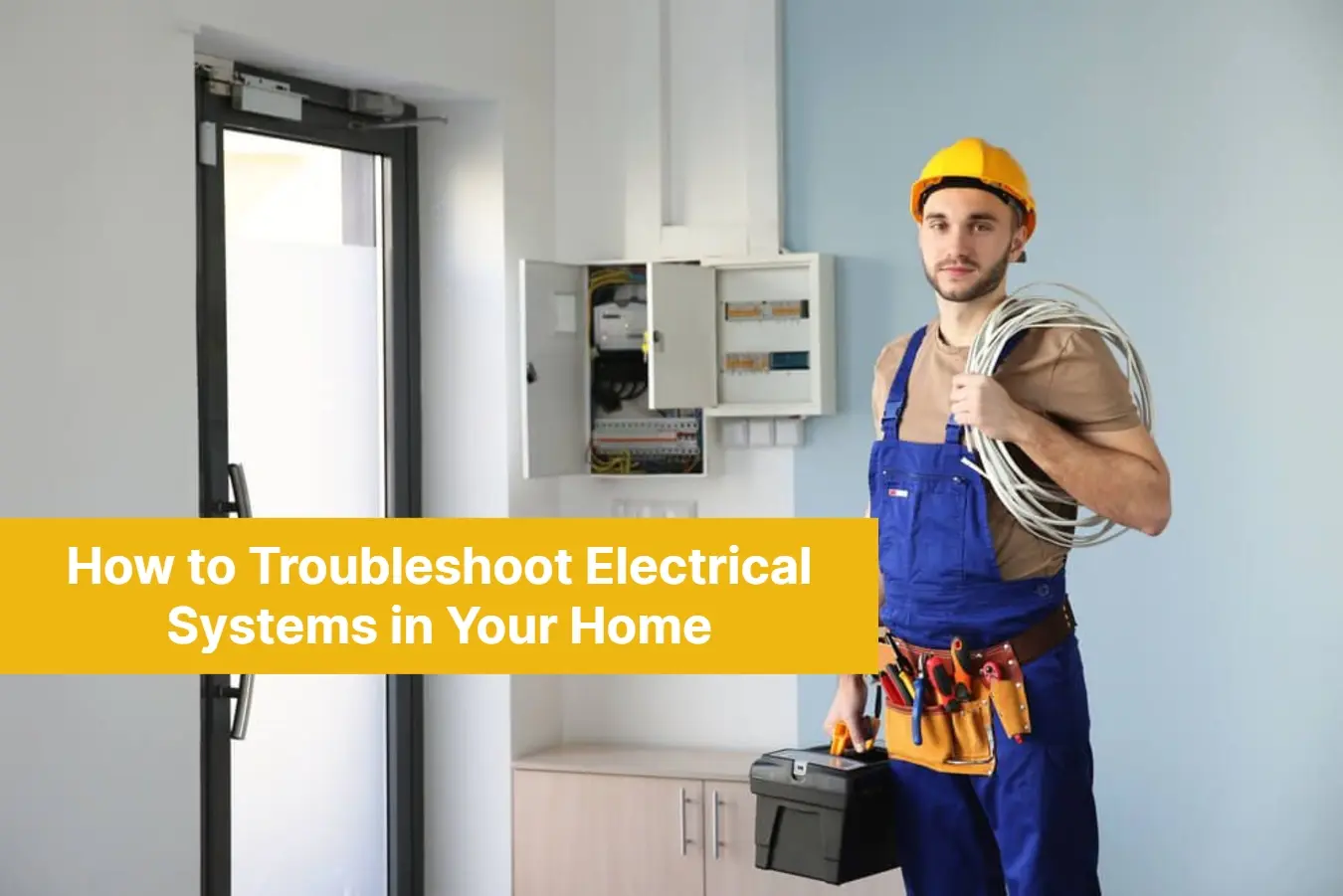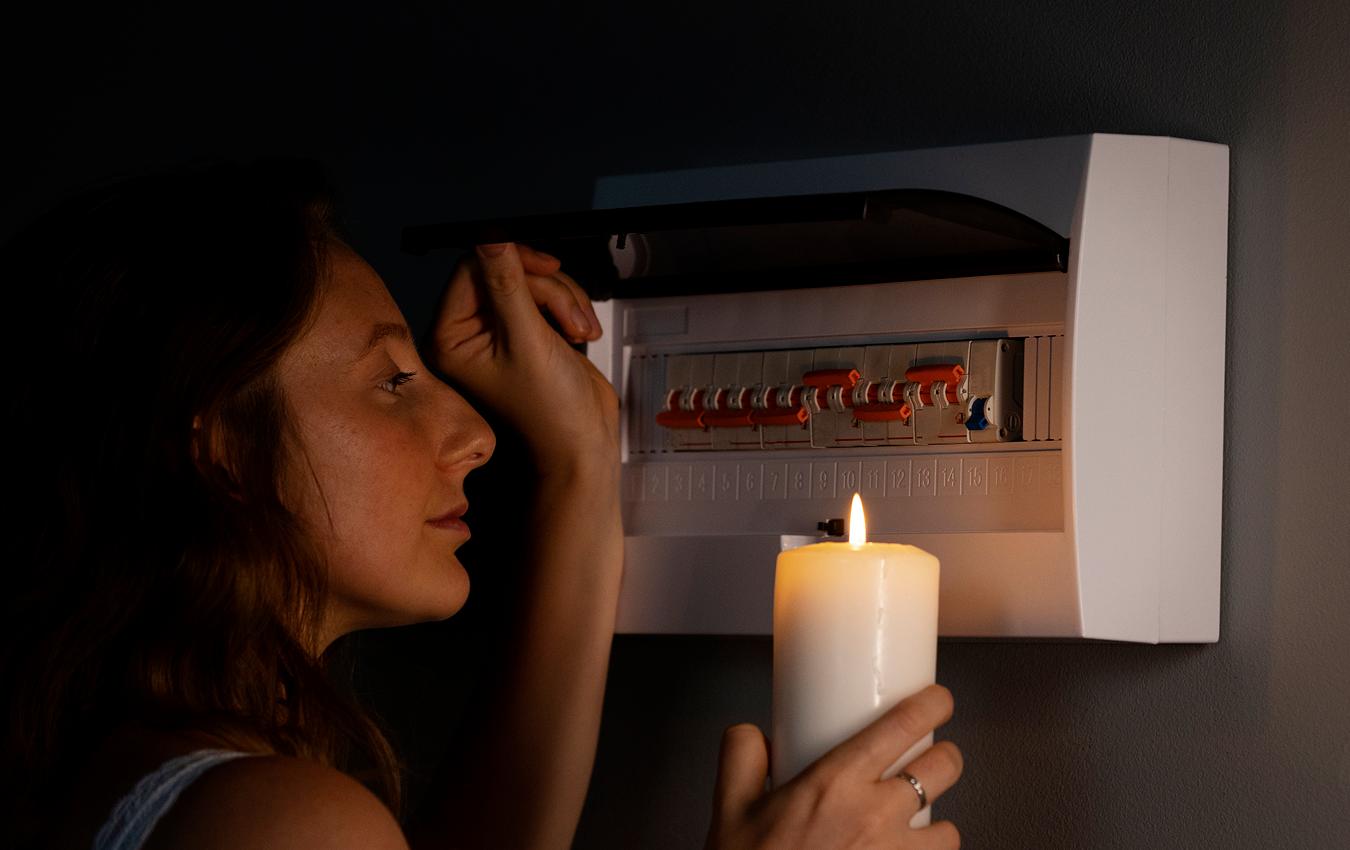Electricity powers almost everything in our homes, from the lights we turn on to the appliances we use every day. But when something goes wrong with our electrical systems, it can be both frustrating and dangerous. That’s why it’s important to know how to troubleshoot your home’s electrical systems. In this article, we’ll take a look at the basics of electrical troubleshooting, starting with outlets and working our way up to wiring. We’ll cover common problems you might encounter, such as a dead outlet or a tripped breaker, and we’ll provide step-by-step instructions on how to diagnose and resolve these issues. With a bit of knowledge and some basic tools, you can keep your home’s electrical systems running smoothly and safely. So let’s get started and learn how to troubleshoot electrical systems in your home!
Understanding Electrical Outlets and Wiring
Before we start troubleshooting, let’s go over the basics of electrical systems. Electrical outlets are the points in your home where you can plug in your electrical devices. They are connected to wires that run through your walls and connect to your home’s electrical panel. Your home’s wiring consists of a series of circuits that are controlled by breakers or fuses in the electrical panel. Understanding how these components work together is essential to troubleshoot electrical problems effectively.
Common Electrical Problems and Their Causes
It’s not uncommon to experience electrical problems at home. Some common issues include a dead outlet, a tripped breaker, flickering lights, and power surges. These problems can be caused by a variety of factors, such as overloading circuits, faulty wiring, or outdated electrical systems. Identifying the cause of the problem is crucial to fix it promptly and prevent it from happening again.
Do you need the help of a home electrician to fix electrical problems and malfunctions?
Premier Electrical Services will quickly and efficiently fix electrical faults and resolve problems in home electrical wiring. Use the phone number 954-900-1696 to call us or write to us about what is bothering you!
Tools Needed for Troubleshooting Electrical Systems
To troubleshoot electrical systems, you’ll need some basic tools. These include a voltage tester, a circuit tester, wire strippers, pliers, and screwdrivers. A voltage tester is used to check if an electrical outlet is live, while a circuit tester is used to determine whether a circuit is live or not. Wire strippers are necessary to remove the insulation from wires, while pliers and screwdrivers are used to remove and install outlets and switches.
Safety Precautions When Working with Electricity
Working with electricity can be dangerous, and it’s essential to take safety precautions to prevent accidents. Before starting any electrical work, turn off the power to the circuit you’ll be working on. Use a circuit tester to ensure that the circuit is not live. Wear rubber-soled shoes and avoid working in wet or damp areas. Never touch bare wires or metal parts of electrical devices when the power is on, and always use insulated tools.
Troubleshooting Electrical Outlets
A dead outlet is a common electrical problem that can be caused by a variety of factors, such as a tripped breaker, a faulty outlet, or a loose connection. To troubleshoot a dead outlet, start by checking the circuit breaker or fuse box to see if the breaker has tripped or the fuse has blown. If the breaker or fuse is fine, use a voltage tester to check if the outlet is live. If the outlet is not live, turn off the power to the circuit and remove the outlet cover to check for loose connections or faulty wiring.
Troubleshooting Wiring Issues
Wiring issues can cause a variety of electrical problems, such as flickering lights, power surges, and tripped breakers. These problems can be caused by loose connections, faulty wiring, or overloaded circuits. To troubleshoot wiring issues start by turning off the power to the circuit you’ll be working on. Use a circuit tester to determine whether the circuit is live or not. Check for loose connections or damaged wiring, and replace any faulty components.
When to Call a Professional Electrician
While some electrical problems can be easily addressed with basic knowledge and tools, others require the expertise of a professional electrician. If you’re unsure about how to resolve an electrical problem or if it involves working with live wires, it’s best to call a licensed electrician. Attempting to fix complex electrical issues can be dangerous and could lead to serious injury or property damage.
Preventative Measures to Avoid Future Electrical Problems
Preventative measures can help you avoid future electrical problems. These include installing surge protectors, replacing outdated electrical systems, avoiding overloading circuits, and having your electrical systems inspected regularly by a licensed electrician. Taking these steps can help keep your home’s electrical systems running smoothly and safely.
Conclusion and Summary of Key Takeaways
In conclusion, knowing how to troubleshoot electrical systems in your home is essential to keep your family safe and avoid costly repairs. Understanding electrical outlets and wiring, common electrical problems, and the tools needed for troubleshooting can help you diagnose and resolve electrical issues. Remember to take safety precautions when working with electricity, and always call a professional electrician if you’re unsure about how to address a problem. Taking preventative measures can help you avoid future electrical problems and keep your home safe. Premier Electrical Services can help you troubleshoot your home’s electrical system for the comfort and safety of your family. To make a request, dial 954-900-1696 or use the online form.
Check out the latest news:
- Commercial Energy Audit: Spotting the Sources of Energy Waste
- Protect Your Fort Lauderdale Home with Whole-House Surge Protection
- Power Outages in Fort Lauderdale: How to Protect Your Home
- Preparing for a Home Rewiring Project: A Checklist for Homeowners
- 5 Critical Signs You Need a Whole-House Surge Protector





